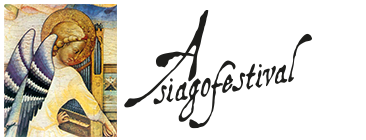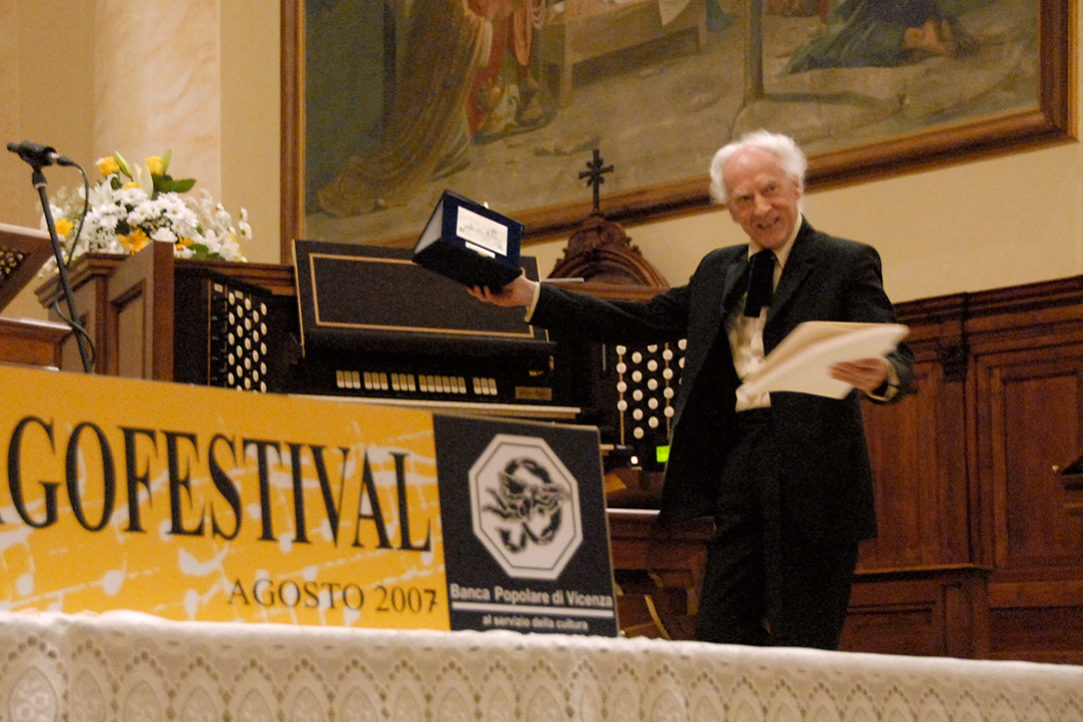Guillou Jean
2007 –
Jean Guillou, titular organist of the great organs of St. Eustache, is first and foremost a composer who was able to considerably stretch the technical limits of instrumental performance, to elaborate and develop, already from his young age, more or less secretly, a singular musical world of great individuality, but which the notoriety of the performer has left in the shadows for some time.
This universe of composer Jean Guillou, it seems to us, should be valued on a par with the notoriety of performer.
A doctoral thesis was sustained at the Sorbonne by Jean-philippe Hodant, entitled “Rhétorique et Drammaturgie dans l’ouvre musicale de Jean Guillou” a work famously devoted to the study of three major compositions “La Chapelle des Abimes” “Judith-Symphonie” for mezzo soprano and large orchestra and “Hypérion.” The postulate of this thesis was to show that Jean Guillou’s art consists of the creation of an autonomous musical rhetoric that is combined with a literary discourse: musical narrative that encloses and contains dramatic gestures, which becomes dramaturgical stylization by delivering a perfectly structured language that blends into the same poetic gesture.
It is in this sense that Jean Guillou tends to design a new, more poetic and richer organ, discovering the multiple and complex nature of this instrument. He is first and foremost the creator of an innovative way of constructing the instrument, and the organs of “L’Alpe d’Huez,” the “Chant d’oiseaux” in Brussels, the Naples Conservatory, and the “Tonhalle in Zurich” are expressions of this. This conception of the organ is moreover the key to his work “L’orgue, Souvenir et Avenir,” which is in its third edition. This book evokes the entire history of the organ from the third third century to the present day, up to the description of his instruments and his “Orgue a Structure variable.” With his new project, for the Tenerife concert hall, of an organ divided into 6 cases and 12 sound bodies, Jean Guillou invents the dramaturgical organ, playable on a console of 4 keyboards , but also by 12 organists.
Through his teaching at the “Meister Kursus” in Zurich since 1970, he has trained organists from all over the world.
Pianist, Jean Guillou, resurrects the piano sonata of Julius Rubke, a pupil of Lizt, who died at age 24 after leaving behind two masterpieces, “Cette Soane pour piano” and the “Sonate pour orgue,” which Jean Guillou was the only one to have recorded and performed together in concert. He also inaugurated in 2002 at the Teatro Olimpico in Vicenza and at the Opera royal in Versailles, Le Piano-Pedalier Borgato.
In addition to numerous lyrics and poems, he wrote the text for “Alice au Pays de L’orgue,” as well as the poems for his “Cantates Aube” for 12 voices and the organ, the “Poème de la Main” for soprano and piano, and also “Echo” for Choeur and instrumental ensembles.
In 2002, he created his “Colloquium No. 7” for piano and organ, on the occasion of the inauguration of the Philharmonie de Dortmund, and “Colloquium No. 8” for Marimba and Organ in 2003
He is particularly interested in the organ’s connection with other instruments, and in fact Jean Guillou has written 5 concertos for Organ and Orchestra, works for cello and organ, Viola and organ, Trombette, clarinet.
Philips, which has had all his recordings made from the 1960s to the 1970s rediscovered in 9cd, also offers part of his works for organ and other instruments and seu transcriptions in another 7cd. In addition, Jean Guillou has recorded the complete Bach, a CD with the Borgato double piano, and a CD entirely devoted to Mozart.


